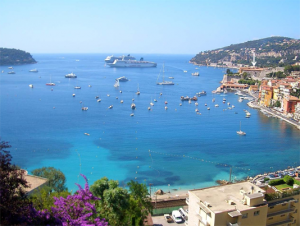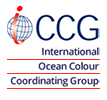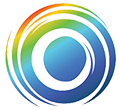2022 IOCCG Summer Lecture Series
Frontiers in Ocean Optics and Ocean Colour Science: 18-29 July 2022
Overview
 The 5th edition of the advanced IOCCG Summer Lecture Series took place from 18-29 July 2022 in Villefranche-sur-Mer. The course was held at the Laboratoire d’Océanographie de Villefranche (LOV), which is part of the IMEV (Institut de la Mer, de Villefranche), and hosts the Marine Optics, Remote Sensing, and Biogeochemical Applications group.
The 5th edition of the advanced IOCCG Summer Lecture Series took place from 18-29 July 2022 in Villefranche-sur-Mer. The course was held at the Laboratoire d’Océanographie de Villefranche (LOV), which is part of the IMEV (Institut de la Mer, de Villefranche), and hosts the Marine Optics, Remote Sensing, and Biogeochemical Applications group.
As in previous years, this high-level training course was dedicated to the fundamentals of ocean optics, bio-optics and ocean colour remote sensing. Several distinguished research scientists provided lectures on cutting edge research, with focus on current critical issues in ocean colour science. Students had ample opportunity to meet with lecturers for in-depth discussions on various pre-selected topics, as well as their own scientific research.
Practical lab sessions were conducted to help students understand absorption, scattering and the colour of the ocean. Students also learnt how to collect high-quality in situ data, and how to interpret the measurements.
The new “Jules Barrois” accommodation building at LOV provided shared accommodation for course participants.
Course Delivery
In addition to practical sessions on Copernicus datasets, playing with Light, AC-labs, and HydroLight labs a range of lectures were covered in the course including:
- Interaction of light and matter
- Optics of marine particles
- Inherent optical properties (fundamentals, measurement and proxies for biogeochemical properties)
- Ocean scattering
- Apparent optical properties (fundamentals, measurements & uncertainties)
- Past, present and future of satellite OCR
- Atmospheric corrections of satellite OCR observations
- Basics on OCR inversion algorithms
- Shallow water remote sensing
- NPP; Carbon export; climate-driven changes
- HABS, and use of OCR in biogeochemical modelling
Course Sponsors
We thank the organisations listed below for sponsoring and supporting the 2022 Summer Lecture Series. (Alphabetic order)
- CNES (French National Space Agency), for funding the SLS logistic assistant role, students’ accommodation, lecturers travel costs, the audio and video recording of lectures and other operating expenses.
- The “EU Framework Partnership Agreement for Copernicus Users Uptake” (FP-CUP), for funding students and lecturers travel costs, the audio and video recording of lectures and other operating expenses.
- EUMETSAT (European Organisation for the Exploitation of Meteorological Satellites), for funding students travel expenses and full support to EUMETSAT lecturers.
- Institut de la Mer, de Villefranche (IMEV), France, for providing the lecture room, laboratory facilities and assistance for practicals, and subsidised student accommodation.
- International Ocean Colour Coordinating Group (IOCCG*), for administrative support, website maintenance and funding lecturers travel costs.
- Laboratoire d’Océanographie de Villefranche (LOV), France, for administrative support.
- Ocean Carbon & Biogeochemistry (OCB) Project Office, Woods Hole, MA, USA, for funding students travel costs.
- Royal Belgian Institute of Natural Sciences (RBINS), for support to two lecturers.
- Sea-Bird Scientific, for providing an AC-S Spectral Absorption and Attenuation Sensor for the practical sessions
- All lecturers’ time is provided in-kind by their respective institutions (list below).
*Note that IOCCG support implicitly means a shared support by all IOCCG constitutive agencies and institutions.
Lecturers SLS 2022
- Emmanuel Boss – University of Maine, ME, USA
- Collin Roesler – Bowdoin College, ME, USA
- Mike Twardowki – Harbor Branch Ocean. Inst., USA
- Dariusz Stramski – Scripps Institution of Oceanography, USA
- David Antoine – Curtin University, Australia
- Ali Chase – University of Washington, USA
- John Hedley – Numerical Optics Ltd., Tiverton, Devon, UK
- Kevin Ruddick- Royal Belgian Institute of Natural Sciences, Belgium
- Quinten Van Hellemont – Royal Belgian Institute of Natural Sciences, Belgium
- Hayley Evers-King – EUMETSAT, Germany
- Ana Ruescas – Brockmann Consult GmbH and Universitat da València, Spain
Selected Students SLS 2022
- Isabel De Sousa Brandão – Royal Netherlands Institute for Sea Research (NIOZ), Netherlands
- Amir Masoud Chegoonian – University of Waterloo and University of Regina, Canada (unable to attend)
- Anastasia Papadopoulou – Democritus University of Thrace, Greece
- Sejal Pramlall – Spectral Remote Sensing Laboratory, University of Victoria, Canada
- Giulia Sent – MARE-ULisboa, Portugal
- Esther Patricia Urrego – Laboratory for Earth Observation, Image Processing Laboratory (IPL), University of Valencia, Spain
- Masuma Chowdhury – Quasar Science Resources (Madrid) and University of Cadiz, Spain
- Chandanlal Parida – Indian Institute of Science (IISc), India
- Premkumar Rameshkumar – Annamalai University, India
- Yulun Wu – University of Ottawa, Canada
- Shun Bi – Helmholtz-Zentrum Hereon, Germany
- Žarko Kovač – Faculty of Science, University of Split, Croatia
- Samuel Martin – Laboratoire d’Océanographie de Villefranche (LOV), France
- Flavien Petit – Institut de la Mer de Villefranche (Sorbonne Université), France
- Bastian Raulier – Université Laval, International Research Laboratory Takuvik, Quebec, Canada
- Jakob Weis – University of Tasmania and Australian Research Council Centre of Excellence for Climate Extremes, Australia
- Muhammad Asim – Department of Physics and Technology, UiT The Arctic University of Norway (UiT), Tromsø, Norway
- Kyeong-Sang Lee – Korea Institute of Ocean Science & Technology, South Korea
- Elinor Tessin – University of Bergen, Norway
- Patrick Clifton Gray – Duke Marine Lab, Nicholas School of the Environment, Duke University, USA
- Anvita Kerkar – Harbor Branch Oceanographic Institute, Florida, USA
- Chintan Maniyar – Department of Geography, University of Georgia, USA
- Md Masud-Ul-Alam – The University of Georgia, USA and BSMR Maritime University, Bangladesh
- Anna Elizabeth Windle – University of Maryland Center for Environmental Science, Horn Point Laboratory, USA
Video Recordings and Lecture Slides (SLS 2022)
Video recordings of all the lectures at the 2022 Summer Lecture Series are available here and are also linked to the individual lectures below.
Lectures by David Antoine
Curtin University, Australia
Lectures by Ana B. Ruescas
Brockmann Consult GmbH and Universitat da València, Spain
- Machine Learning for Ocean Colour (PDF)
Lectures by Quinten Vanhellemont
Royal Belgian Institute of Natural Sciences
- Atmospheric correction for turbid coastal and small inland waters using ACOLITE/DSF (PDF)
Note: Video recordings and PowerPoint presentations of all previous IOCCG Summer Lecture Series are available at https://ioccg.org/what-we-do/training-and-education/lectures/


 The 6th International Ocean Colour Science (IOCS) meeting was held in Darmstadt, Germany from 1 – 4 December 2025, hosted by EUMETSAT and ESA. All meeting material is available is on the archive webpage.
The 6th International Ocean Colour Science (IOCS) meeting was held in Darmstadt, Germany from 1 – 4 December 2025, hosted by EUMETSAT and ESA. All meeting material is available is on the archive webpage.